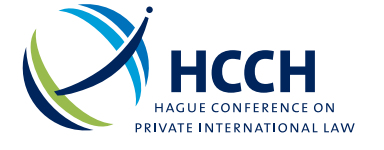 An Apostille (pronounced “ah-po-steel”) is a French word meaning certification.
An Apostille (pronounced “ah-po-steel”) is a French word meaning certification.
An Apostille is simply the name for a specialized certificate, issued by the Secretary of State. The Apostille is attached to your original document to verify it is legitimate and authentic so it will be accepted in one of the countries who are members of the Hague Apostille Convention (see below).
In the United States, all 50 states, the District of Columbia, and the Federal Government (US Department of State – Office of Authentication) can issue an Apostille. In total, the United States can issue 52 different apostilles.
In 1961, many countries joined together to create a simplified method of “legalizing” documents for universal recognition. Members of the conference, referred to as the Hague Convention, adopted a document referred to as an Apostille that would be recognized by all member countries.
Since October 15, 1981, the United States has been part of the 1961 Hague Convention abolishing the Requirement of Legalization for Foreign Public Documents.
The Apostille Convention provides the simplified certification of public (including notarized) documents to be used in countries that have joined the convention. Documents destined for use in participating countries and their territories should be certified by one of the officials in the jurisdiction in which the document has been executed.
The Apostille Convention requires that all Apostilles be numbered consecutively, with individual numbers applied to each Apostille issued. The recognized standard Apostille contains a seal and 10 mandatory references: name of country from which the document emanates, name of person signing the document, the capacity in which the person signing the document has acted, in the case of unsigned documents, the name of the authority that has affixed the seal or stamp, place of certification date of certification, the authority issuing the certificate, number of certificate, seal or stamp of authority issuing certificate and signature of authority issuing certificate.
Prior to the introduction of Apostille certificates the burden on international courts and authorities to judge foreign documents as authentic was quite considerable. On the October 5, 1961 the Hague Convention abolished the requirement of legalization for foreign public documents. The Convention reduces all of the formalities of legalization to the simple delivery of a certificate in a prescribed form, entitled “Apostille”, by the authorities of the State where the document originates. This certificate, placed on the document, is dated, numbered and registered. The verification of its registration can be carried out without difficulty by means of a simple request for information addressed to the authority which delivered the certificate.
 The following 126 countries are members of the Hague Apostille Convention. Documents destined for these countries require only an apostille from the Secretary of State. To begin, click on the country requesting your documents.
The following 126 countries are members of the Hague Apostille Convention. Documents destined for these countries require only an apostille from the Secretary of State. To begin, click on the country requesting your documents.
List Updated: June 2024
The following 52 countries listed below are not members of the Hague Apostille Convention. Documents requested by these countries will require several steps to complete (legalization process). These steps include State certification, US Department of State certification, and Embassy or Consulate legalization. This three-step process is commonly known as the “Legalization Process”. Please Contact Us for the estimated breakdown in cost and processing time.
List Updated: June 2024
We can process documents issued from all 50 U.S. states, District of Columbia, and the U.S. Federal Government.
What US State are your documents from?













































































































































































